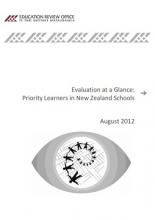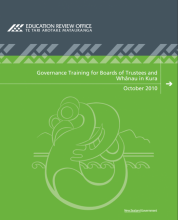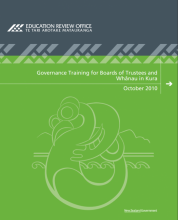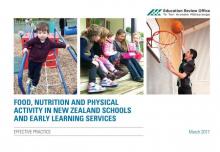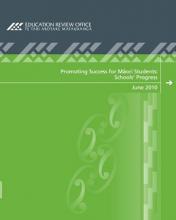Evaluation at a Glance: Priority Learners in New Zealand Schools
This report is the second in our Evaluation at a Glance series. It is a synthesis of material from 15 national evaluations and reports of good practice published in the last four years that, taken together, reveal three key issues facing New Zealand’s education system.
